From Battles to Bigotry: The Barriers of Sexism in Hip-Hop
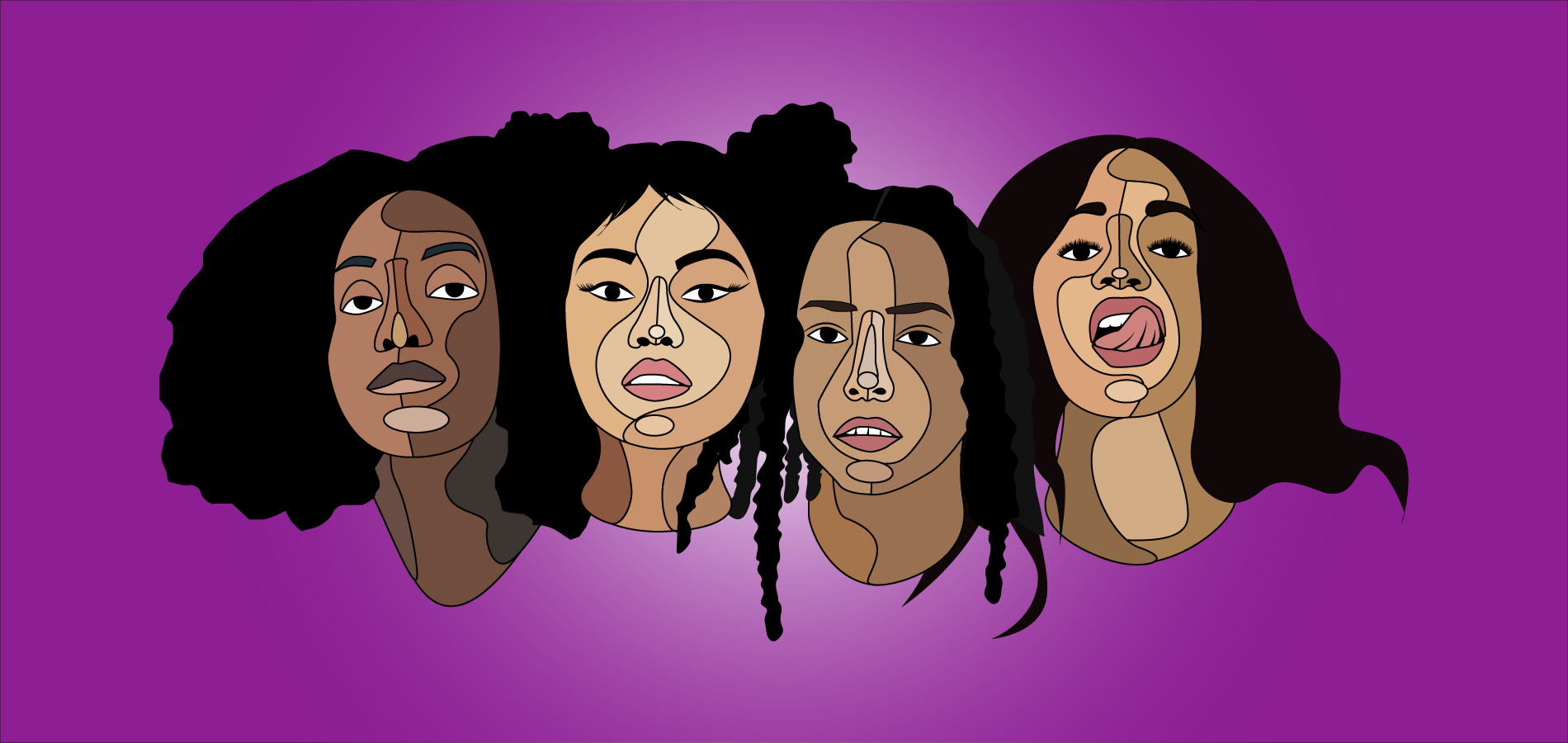
People saw two females coexisting in a hip hop space, and they remembered the tacit rule of this culture: there’s only room for one.
Nicki Minaj is not a rapper.
Cardi B is not a rapper.
Noname, Rico Nasty, Princess Nokia are not rappers.
They are female rappers, emphasis on the female. Hip hop was born in the cradle of masculinity and has evolved within it. Female rappers like Noname knock at the glass ceiling only to find themselves shut down, any achievement earned prefaced with the infamous “female” label, minimizing them to something lower than the ordinary male rapper. The hip hop community has fostered this segregation by celebrating masculinity and degrading femininity, either by pitting any woman who dares enter the rap game against another or by simply integrating misogynistic lyrics into their music. One content analysis of rap music from 1987-1993 proved that 22% of gangsta rap music contained violent, misogynistic lyrics. Not to mention 11 of 14 of Eminem’s tracks on The Marshall Mathers hold women-hating lyrics, such as “Slut you think I won’t choke no whore? ‘Til the vocal cords don’t work in her throat no more?”.
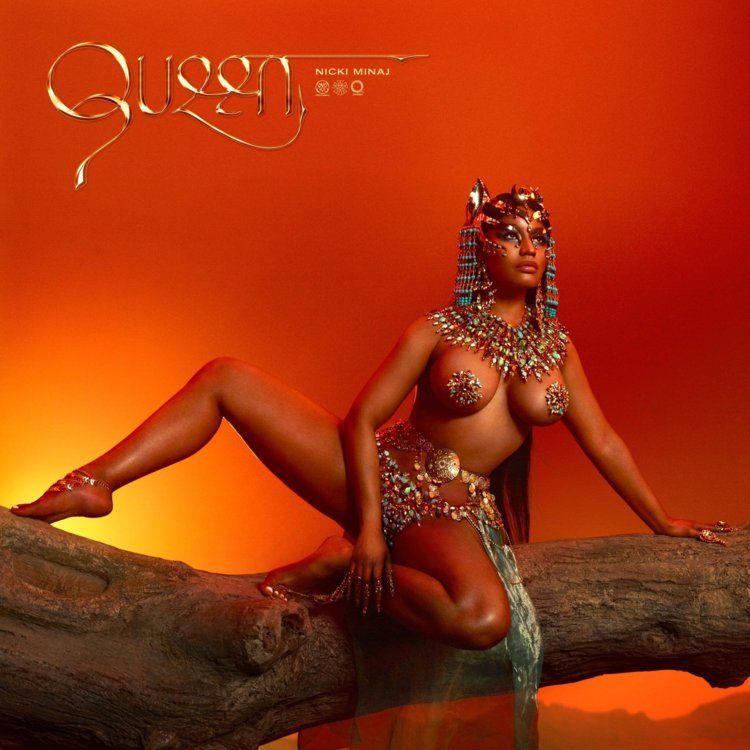
Nicki Minaj’s ‘Queen’ peaked at #2 on the Billboard 200 this past August, 8 years after the released of her debut album ‘Pink Friday.’
It’s a miracle that woman have even broken through this rigid wall of toxic masculinity. One of the first to do this was Nicki Minaj. However, when Minaj entered the rap game, a lot of her songs fed into this cycle of misogyny with lyrics like “If I had a dick, I would pull it out and piss on ‘em [bitches]…” and “Bitch talking she the queen when she looking like a lab rat.”
One could argue that the lyrics are the product of a culture she’s been forced to conform to, a culture that uses violent lyricism and hatred as a form of gatekeeping. In order to gain success through this platform, Minaj must call other girls “bitches” and “cunts” even if it goes against her true feminist intentions. Her intentions become doubtful, however, when she perpetuates this anti-female attitude in various interviews.
“Every two years I get told about some new female rapper. To me, it’s silly to compare me to women because there’s no woman that can put up the stats that I’ve generated,” Minaj said in a CRWN interview. It becomes apparent that she recognizes the minimal legroom woman have in the hip hop community, but rather than working to make room for other females, she carries the title of ‘Queen’ to mark her territory. She entered this game alone and she wants to keep it that way, suppressing all other woman competitors.
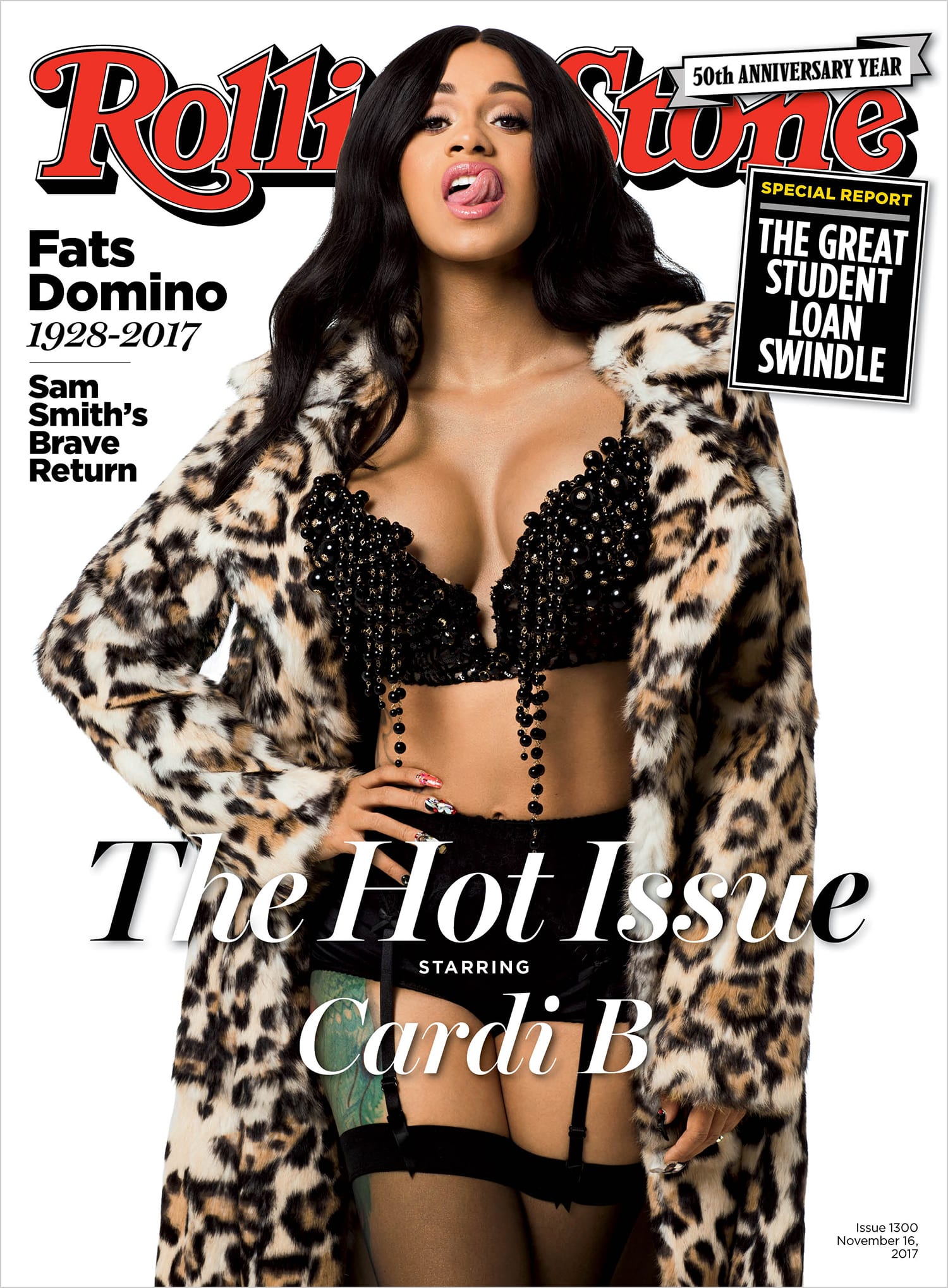
Cardi B appeared on the cover of the November 2017 Rolling Stone issue.
On Billboard’s 2018 Top 50 R&B/Hip Hop Artists list, there were only two female rappers. One was Nicki Minaj, but ranking ten spots above her is a new contender: Cardi B. When Cardi B popped up this year, it seemed like a good thing for women in rap. Finally, another woman who will help create a larger and more welcoming place for women in hip hop. But the history of this culture has made it clear: this is not allowed.
It wasn’t just that Minaj monopolized the female rapper role, she actively fought against other women who might claim the title. It makes sense that she would act this way, considering in her climb to the top, she digested the rhetoric of a community that fed anti-women attitudes by either pitting females against each other or just objectifying them down to two or three holes. She found success in a community that hates her.
There have been a lot of feuds in hip hop, like Meek Mill vs. Drake, where Meek Mill accused Drake of using a ghostwriter for his songs. The difference between other rappers’ feuds and the Cardi B and Nicki Minaj feud is that this one boils down to misogyny in rap culture. This feud wasn’t sourced around music writing skills like the Drake and Meek Mill feud and most other beef between male rappers. Looking back at the timeline, their animosity was due to the smothering accusations from the Internet, often by the public over analyzing their lyrics and motivations.
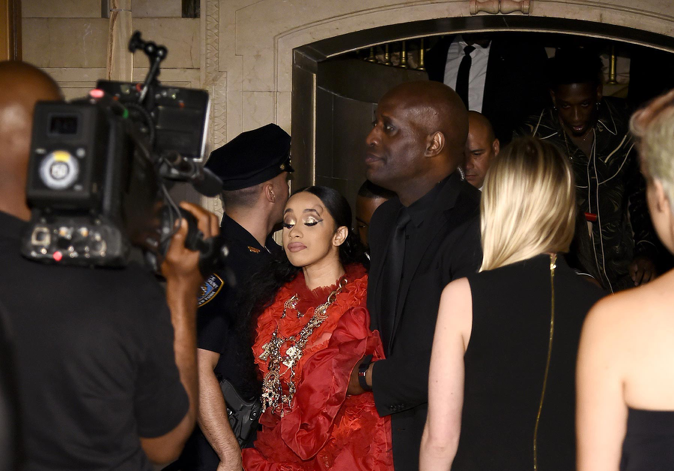
Cardi B leaves Harper Bazaar’s ICON event with a noticeable bump on her forehead after allegedly throwing a stiletto at Nicki Minaj. Photo by Steven Ferdman / WireImage.
The accusations were designed to provoke the artists, especially Cardi B. People saw an up-and-coming female rapper and compared her with a veteran because they share the same gender and race. People saw two females coexisting in a hip hop space, and they remembered the tacit rule of this culture: there’s only room for one. Internet rumors flew and stretched beyond limits either of the women was capable of handling, which escalated to the infamous Stiletto incident at New York Fashion Week in September. If the culture made it more accessible to women instead of carving out a little space for one woman only, Nicki Minaj would not feel as threatened by Cardi B. Cardi B would be less inclined to believe the rumors. The rumors probably would’ve never even happened in the first place. Instead of celebrating these women’s hip hop accomplishments, the culture scrutinizes their actions and appearance and then forces them to compete against one another.
It’s easy to look at two women and compare them, even if one of them has more in common with other male rappers. It’s easy to blame either one of the women for starting a fight they didn’t have the choice to back out of. If Minaj wishes to remain relevant among artists like Kendrick or Kanye, the culture shoves her into the ring with the next up-and-coming artist and the world watches them brawl it out while they criticize their sexuality and ignore their talent.
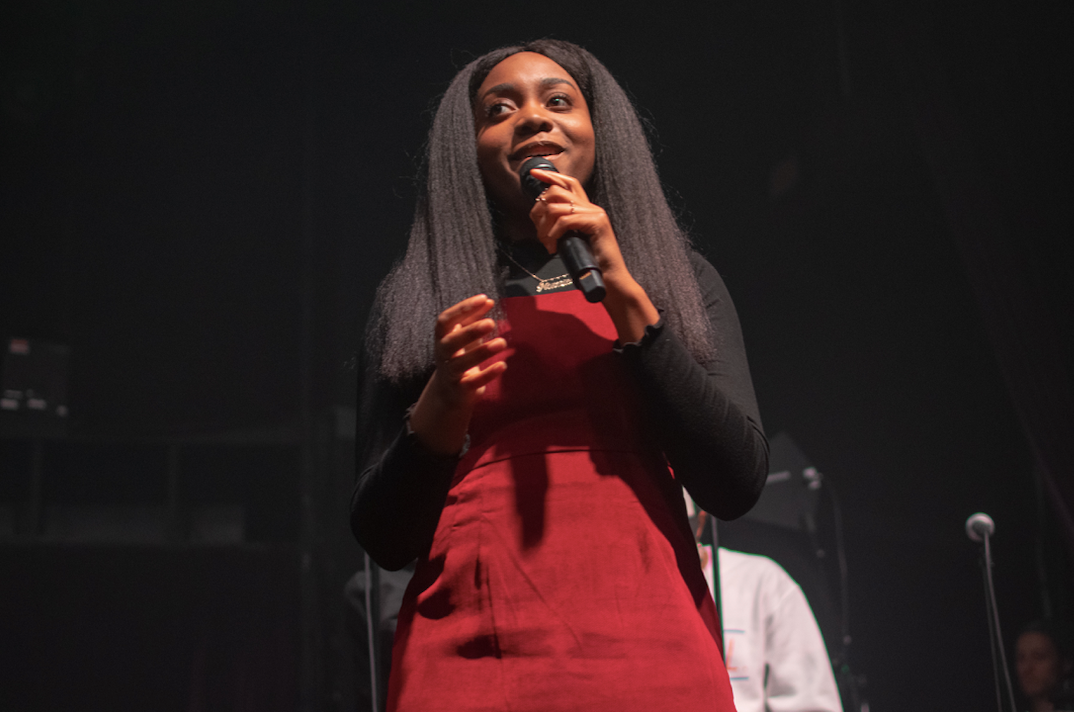
Noname performing at the Royale on January 10, 2019. Photo by Chris Triunfo for WRBB.
By paying so much attention to the volatile relationship of these two women, we continue to neglect the talent of women beyond them. Noname dropped Room 25 in 2018, receiving critical acclaim by reputable outlets like Pitchfork and SPIN, calling it “one of the most quietly powerful rap albums of 2018.” Her lyrics are injected with strong messages directed to fellow women, specifically black women, who are one of the most targeted demographics in hip hop. Her flow is graceful, inventive, and she proves tremendous artistry and talent in this album.
Even with those achievements, her album was swept under the rug with one word: female. The discussion of her lyrics, her flow, is inside the framework of her gender, minimizing the raw talent she has. She’s garnering respect and popularity but under the boundary of the female narrative. As wonderful as it is to have females in rap, there’s an extra step that women are forced to transcend in order to have the same basic respect as male rappers. It’s a double-edged sword: either she is hated by the public because she’s a woman, or loved by the public because she’s a woman, confining her to a one dimensional understanding of her music. I’ve been distinguishing between “male” and “female” rappers throughout this article, but in a casual context, there should be no distinction. Noname’s music is rap. She’s a rapper.
These women are picking up steam. They’re being recognized, and much of the misogyny that suppresses their career is being called out. However, it’s a process that needs constant nurturing and protecting if we are ever going to rip “female” from the label and open the gate to let women enter the “serious” discussion of rap. If we are ever going to eliminate the one-woman-at-a-time quota and finally allow women in hip hop to be treated in the same respect as men, we need to be mindful of our treatment of women in this culture and our passiveness to the misogyny that prevails. There’s no reason to exclude so much talent just because Eminem hates women.